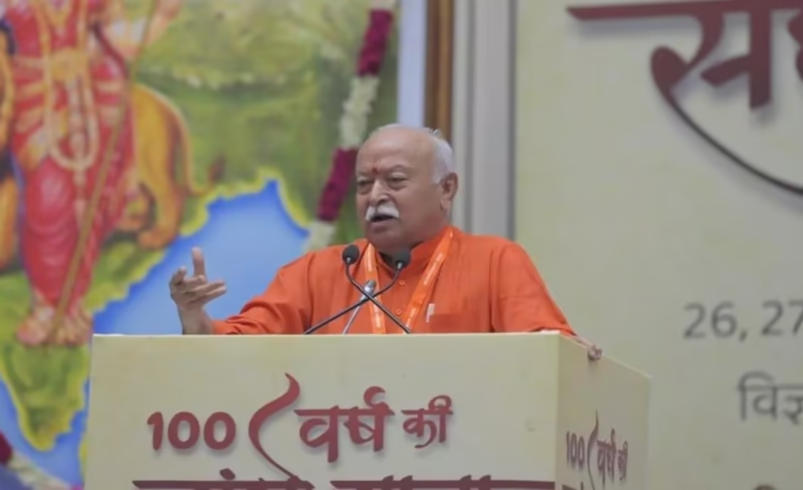RSS Chief Bhagwat Clarifies Stance on Temple Movements
- August 29, 2025
- 0

RSS leader Mohan Bhagwat has clarified that the organization will not support efforts to reclaim temples in Kashi and Mathura, emphasizing that the Ram temple movement was a unique case. This statement aims to project a message of harmony and inclusivity, acknowledging the role of Islam in India and the concept of Akhand Bharat.
Mohan Bhagwat, the chief of Rashtriya Swayamsevak Sangh (RSS), recently addressed the organization’s position on temple movements in India. He made it clear that the RSS will not back campaigns to reclaim temples in Kashi and Mathura, unlike their support for the Ram temple movement in Ayodhya. This declaration comes amidst ongoing debates about historical sites and religious sentiments.
The Ram Temple Movement’s Unique Status
Bhagwat highlighted that the Ram temple movement was a singular initiative supported by the RSS due to its historical and cultural significance. The movement, which culminated in the construction of a temple at Ayodhya, was seen as a resolution to a long-standing dispute. By distinguishing this from other temple movements, Bhagwat aims to prevent further religious conflicts.
Promoting Religious Harmony
In his address, Bhagwat emphasized the importance of religious coexistence in India. He acknowledged Islam’s integral role in the country’s cultural fabric, promoting a vision of unity among diverse communities. This approach is seen as an effort to foster peace and understanding across different faiths.
Understanding Akhand Bharat
Bhagwat also touched upon the concept of Akhand Bharat, which envisions a united Indian subcontinent. He suggested that this idea is more about cultural unity rather than political boundaries. By advocating for this perspective, Bhagwat seeks to promote regional harmony and shared heritage among neighboring countries.
Implications for Future Movements
The RSS’s decision not to support further temple reclamation movements could have significant implications for religious politics in India. It may lead to reduced tensions over contentious sites and encourage dialogue over divisive issues. This stance could also influence other organizations and political entities in their approach to similar matters.
Conclusion: A Step Towards Inclusivity
Mohan Bhagwat’s statements reflect an effort by the RSS to balance its historical positions with contemporary calls for inclusivity and peace. By acknowledging different religions’ contributions to India’s identity, Bhagwat aims to pave the way for a more harmonious future. This approach could serve as a model for fostering unity in a diverse nation.